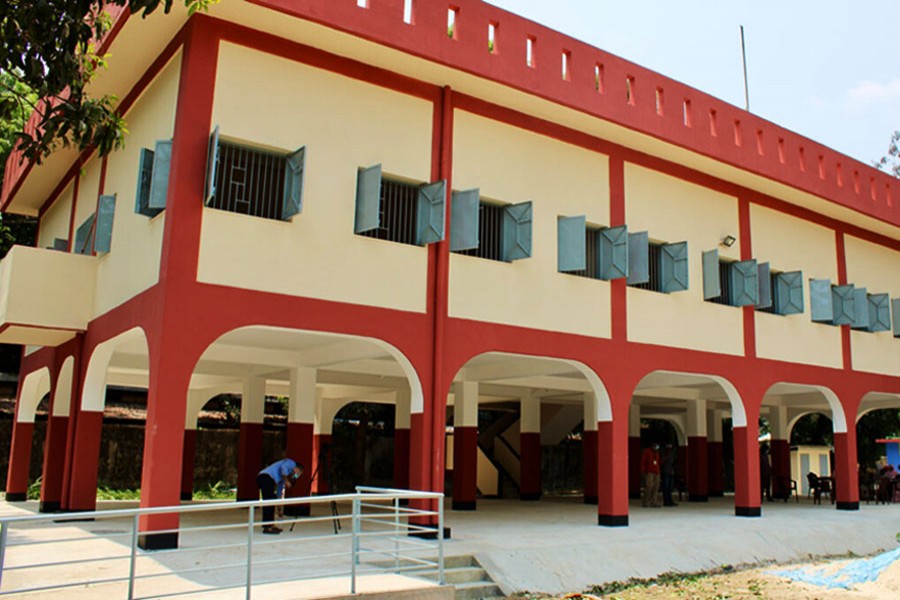The United States Agency for International Development (USAID) on Wednesday virtually handed over 200 repaired cyclone shelters in southern Bangladesh to the local communities and government.
Kathryn Stevens, mission director of USAID, and Ranjit Kumar Sen, additional secretary of the disaster management ministry, joined the virtual programme, said a statement released by the USAID.
The shelters provide over 100,000 community and project participants across Koyra, Dacope, Shyamnagar, and Kaliganj sub-districts with access to safe and secure shelters during disasters such as cyclones and flooding.
As a result of the renovation work, communities are now able to access the shelters with clean WASH facilities including safe and potable water sources for drinking, toilets and hand washing facilities which are now more important than ever in light of COVID.
Shelters are also more accessible with improved access roads and ramps and have safe spaces for vulnerable groups including women, adolescents, children, the elderly, and persons with disabilities.
Mr. Sen said, “With USAID and World Vision support, communities in Koyra, Dacope, Kaliganj and Shyamnagar have access to safe cyclone shelters.”
“Now these shelters are the joint responsibility of communities and the government. We must take care of these shelters so that they keep our communities safe during frequent disasters such as cyclones and floods,” he said in his opening remarks.
Kathryn Stevens said “Since 2001, USAID has worked with Bangladesh government to build over 700 multi-purpose cyclone shelters in high-risk areas that have helped save thousands of lives all over the country.”
Through targeted interventions like this one, USAID is working to increase the institutionalised capacity, coordination, and infrastructure required to prepare, respond, and reduce risks related to cyclones and other environmental shocks.
The U.S. government, through USAID, has provided more than $8 billion in development assistance to Bangladesh since 1971.
Since 2020, USAID has provided over $200 million to improve the lives of people in Bangladesh through programmes that expand food security and economic opportunity, improve health and education, promote democratic institutions and practices, protect the environment, and increase resilience to climate change.


